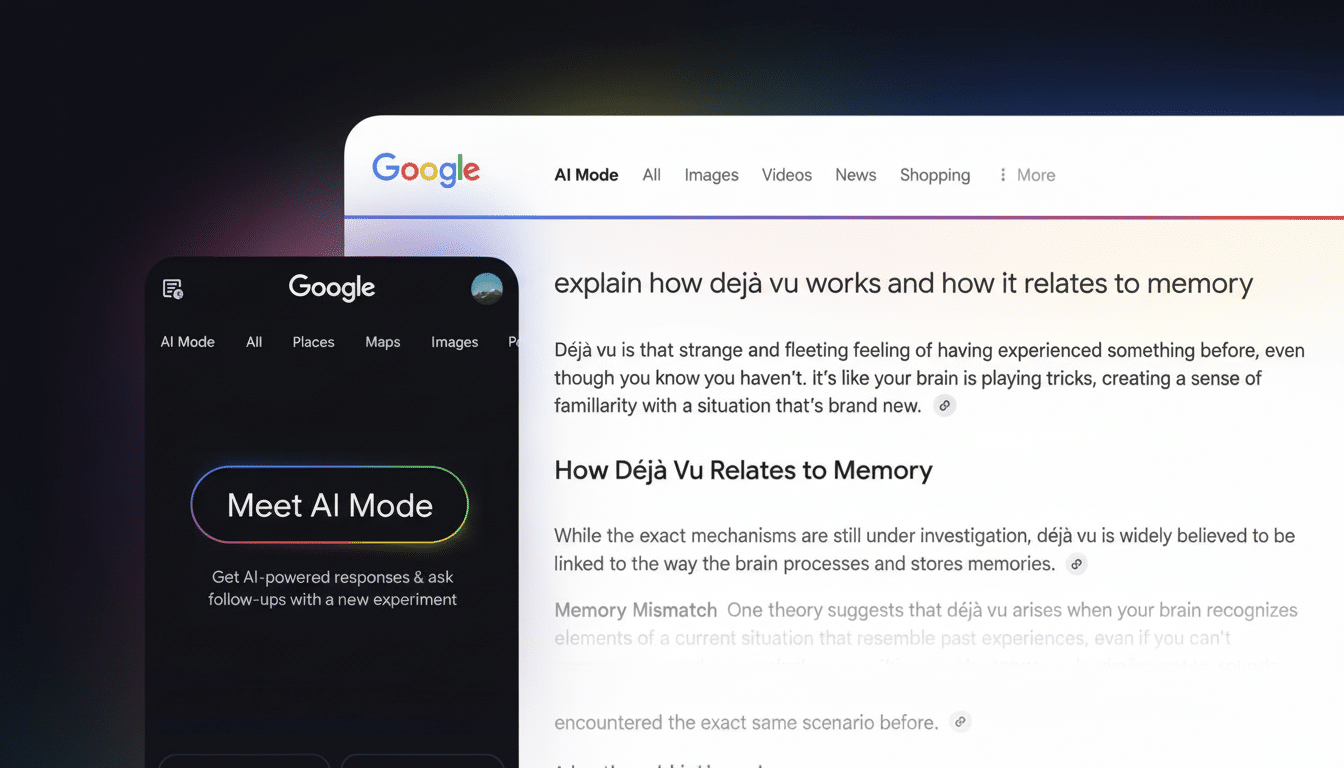Google continues to refine its AI Mode, which addresses the most burdensome aspect of travel: transforming a nebulous concept into an executable, budget-conscious itinerary. Now the company is extending Gemini-powered features that enable you to narrow down trips with targeted questions, see prices comparison-shopped in context, and even offload some booking duties — all from within Search.
What AI Mode’s Canvas now does for planning trips
Inside AI Mode, Canvas is a workspace that shifts between study helper and travel planner.

Begin with a query like “three days in Lisbon under $900 from JFK with kid-friendly activities,” and Canvas produces flight and hotel selections together with itinerary pointers. Then you can follow with specific queries — “switch Day 2 to a beach day,” “hotels only with late checkout,” “plus two vegetarian dinner options” — and the Canvas thread will fine-tune results while maintaining context.
Crucially, it pores over signals from Google Maps reviews and emphasizes themes that crop up often — quiet rooms, walkability, noise at night, pool hours — so that you can filter places on the basis of lived experience rather than just star ratings. This is the kind of nuance travelers typically acquire by scanning dozens of tabs.
For the time being, AI Mode trip planning is only available in the US as an experimental feature in Labs, and it’s web-only for now. That limitation is important, but it also tells us what to expect: Google’s treating this as a pilot to test out UX and guardrails before opening it up to more people.
Flight Deals Goes Global To Find Cheaper Fares
It’s also bringing its Gemini-backed Flight Deals tool to more worldwide destinations, also in tandem with Canvas. It accepts natural language prompts — “somewhere warm in February under $400,” “nonstop weekend trip from Chicago with beach” — and returns curated options that you can click into on Google Flights with the details pre-populated.
The pitch is simple: less wasted time slicing and dicing filters, more time spent comparing valid options that suit your budget. This is important because while airfare volatility remains high, global passenger numbers are still rising according to the industry trade body IATA, and companies like Hopper that track third-party data tend to register precipitous swings when the holidays or a major event approaches. Flight Deals can narrow the search curve to get travelers to dips faster.

It’s also closer to how people actually plan. Studies from Expedia Group have long revealed the fact that travelers typically consult dozens of sources — on average, up to 38 sites — before booking. A conversational, constraint-aware layer over Google Flights cuts down on that tab-juggling without giving up control.
Agentic Booking Points To A Wallet-Off Future
Google is quietly shifting from recommendation engine to “agentic” assistant. AI Mode is increasingly venturing past restaurants and concerts, starting to search and even book hotels with less prompting. In practice, that might be that the assistant double-checks your dates, applies your budget and amenity limitations, secures a cancellable rate (though availability is not always guaranteed), then produces a final confirmation over email.
That shift reflects a broader industry move toward AI doing more work on its own, with users’ approval. When you travel, the reward is saving time (much) and having to make fewer decision dead ends. Obviously the risk is over-automation or opaque prioritization. Google has made a big deal about the assistant being upfront with users, showing sources and price breakdowns and change policies to keep taking on more actions trustworthy.
Real-world use cases for Google’s new AI travel tools
A parent’s search for spring break: “Four nights from Dallas $1,200 total nonstop flights hotel with pool walking to family restaurants.” Canvas bundles up preferences, culls flags for noisy resorts from reviews on Maps, nudges you toward kid-friendly activities, and refreshes when you ask for a new departure time. In the background, Flight Deals is checking for price drops and alternate airports like AUS that fit within those constraints.
Or a single traveler inquires, “Weekend in Tokyo with nearby ramen spots near Shinjuku, budget hotel that has late checkout, keep total <$700 excluding food.” Canvas filters by amenities and neighborhood vibes, while the agentic layer perches at the ready to dangle a refundable room and petition for approval.
Availability and how to try Google’s AI trip tools
- Canvas for travel planning: US-only right now, opt-in through Labs, web app only.
- Flight Deals: rolling out worldwide and accessible through AI Mode prompts, with results driven into Google Flights for booking.
Travel demand has shot back — industry projections predict billions of passenger trips this year — meaning that tools that hasten the planning process and reveal cheaper alternatives are especially timely. If Google makes the assistant explainable and user-in-control, AI Mode could be yet another default travel companion, not just one more search box.

